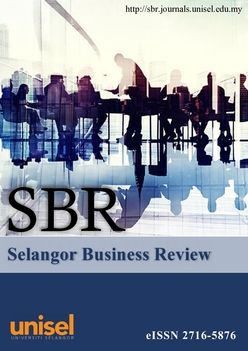Using Waqf in Islamic social finance to enhance SME sustainability
Abstract
This study explores the utilisation of Islamic social finance to promote the sustainability of Small and Medium Enterprises (SMEs) with a focus on the usage of waqf. The study examines the perspective of Islamic social finance, access to Islamic social finance, and the significance of the regulatory framework in facilitating the use of waqf in SMEs. Islamic social finance, which includes ideas like sadaqah, zakat, and waqf, is essential for advancing social welfare and economic growth in Islamic cultures. Small and medium-sized businesses, or SMEs foster innovation, job creation, and economic expansion, hence they are crucial to the economy. However, it can be difficult for SMEs to get the funding and resources they need to continue and grow their business. This study collected data in August 2024 through questionnaire survey focusing on respondents residing in Selangor. The study reveals that two independent variables, namely access to Islamic social finance and the significance of regulatory influences, demonstrate significant and positive relationships with the usage of waqf in SMEs. Conversely, the independent variable on the perspective of Islamic social finance shows no relationship with the usage of waqf in SMEs. The study foresees that regulators, policymakers, and other participants in the field of Islamic finance should be given useful information on how to better help SMEs by utilising cutting-edge financial tools.





 3,026
3,026 2,412
2,412 1,466
1,466